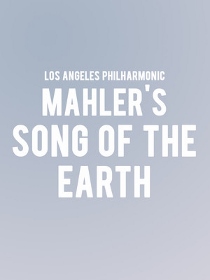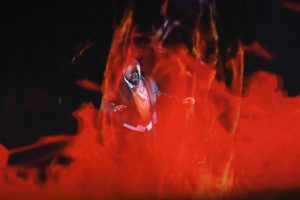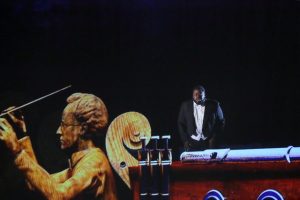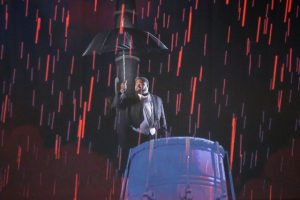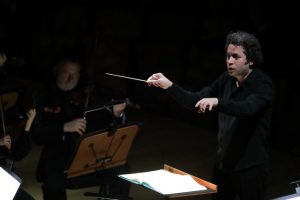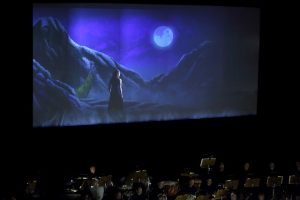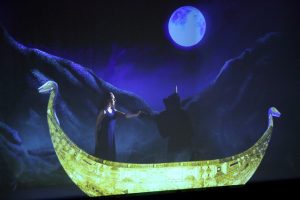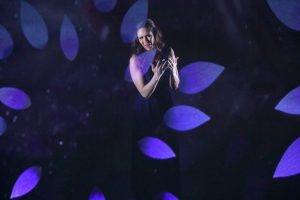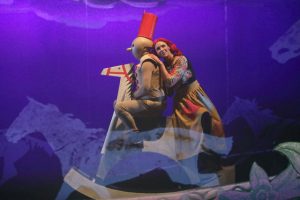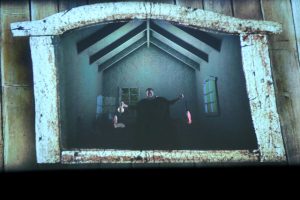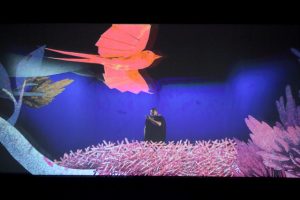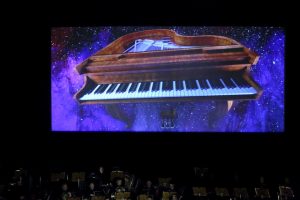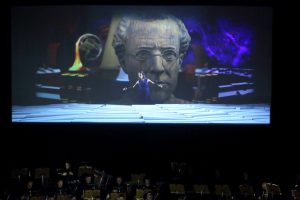FANTASIA 2018
Coming in at a clean 68 minutes, LA Phil’s production of Gustav Mahler’s Das Lied von der Erde (Song of the Earth) was short and sweet with plenty of meat. But through Saturday night, you get far more than just an orchestral rendering, which was also a mournful offering from conductor Gutavo Dudamel to his trusted counselor José Antonio Abreu, the recently deceased founder of Venezuela’s El Sistema.
For this terrific evening — a dual creation of our orchestra’s resident director Yuval Sharon and the Chilean multidisciplinary collective TEATROCINEMA (supported by The Ford Theatres’ Artistic Director Olga Garay-English) — we got a cinematic exploration not unlike Walt Disney’s groundbreaking animation classical music phantasmagoria, Fantasia (1940).
The soloists — tenor Russell Thomas (who made his Chicago Lyric debut this year in Norma) and mezzo-soprano Tamara Mumford (Beethoven’s Missa Solemnis and Mahler’s Third at Disney Hall) — were situated behind, and seen through, Disney Hall’s movie screen; situated on moving sets (with the aid of stagehands and movement artists), they were incorporated with the multi-media.
They became characters in Sharon’s notion of a kind of love story that was extraordinary to watch, but rather difficult to discern in regards to storytelling, which is why the music and images soar, but together they don’t create a sense of catharsis. (It should be noted that the show is staged for proscenium, so from my vantage point on the side above the stage, the images didn’t always sync with the singers, which makes me think that this work was created with many different orchestras in mind, as most venues don’t have Disney Hall’s in-the-round seating.)
The vocalists were a bit swallowed up by the proceedings, and there were times I was forced to close my eyes so I could concentrate on Dudamel’s astoundingly beautiful, transparent, and glorious interpretation. He stopped to smell the roses and found those lovely exchanges of melody. Tempo is something he creates with other ways besides speed; he adjusted a little here and modified a little there, which is why the normal running time had a sense of urgency.
To wit, in the final section “Der Abschied” (“The Farewell”) — which can be lugubriously slow — Dudamel gave us the feeling of life. He’s a genius at finding those treasures along the way; and in a work like this, one which is sectional, there’s no chance for weakness. We also got astounding sonority from the low reeds, harps, horns and trombones. (Given that sometimes the music of your mind is more powerful than the image, don’t hesitate to see Sunday afternoon’s performance, which is music only.)
As for the globally in-demand TEATROCINEMA, this is the most advanced production I have seen of their work — and the storyboarding is phenomenal. And because of the dreamlike quality, a stiff martini or a few puffs beforehand would not be a bad idea before entering this fun house. The adorable creatures and fanciful landscapes include blood-red rain, a toy soldier, a giant piano, an Alice in Wonderland-like wine glass, a ship with Mahler himself as the figurehead, and even Mr. Thomas flying through a jungle.
With whimsy, extravagance, and full-on fantasy, the dazzling, Wagnerian moving images served to elucidate the poetry that inspired the 1908 symphonic cohesive song cycle. Early in 1907, Mahler was given a newly published verse collection of German translations from the Chinese, Hans Bethge’s Die chinesische Flöte (The Chinese Flute).
Mahler, distracted and overworked, set the book aside. Late that summer, when he came across the gift again, he was worse than overworked. In July, his daughter, Maria, four-and-a-half, died of scarlet fever and diphtheria, and he had learned himself that he suffered from a severe heart condition (which ended his life three years later). Work pulled him out of despondency, and these melancholy verses spoke to Mahler with singular urgency.
I have a minor objection to the casting: Thomas, who will be appearing in LA Opera’s production of Mozart’s La Clemenza di Tito next year, was a bit inconsistent in the volume department (which may be due to the amount of stage business he had to do), but he wasn’t a star vocalist here. And while Mumford had strength to spare, she didn’t break your heart in the final moments (I couldn’t help but imagine Stephanie Blythe, the earth-mother voice of earth-mother voices, in this context). Still, Mumford definitely carried the emotional focus of the piece.
Many say that Mahler is an acquired taste, but Das Lied von der Erde is just at the absolute end of emotional and intellectual capacity for expressing the inexpressible, and Dudamel plumbs Mahler’s poetic melancholy and world-weariness while uplifting our spirits. Good for Gustav and Gustavo.
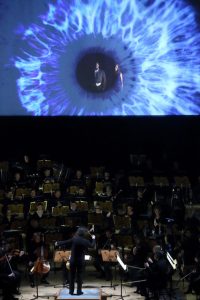 photos by Craig Mathew / Mathew Imaging
photos by Craig Mathew / Mathew Imaging
Los Angeles Philharmonic
Gustavo Dudamel, conductor
Gustav MAHLER:
Das Lied von der Erde (Song of the Earth)
Walt Disney Concert Hall
ends on April 8, 2018
for tickets, call 323.850.2000 or visit LA Phil
